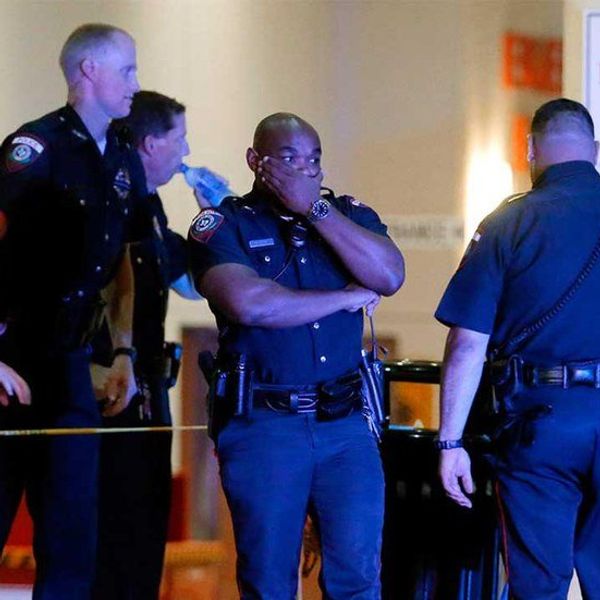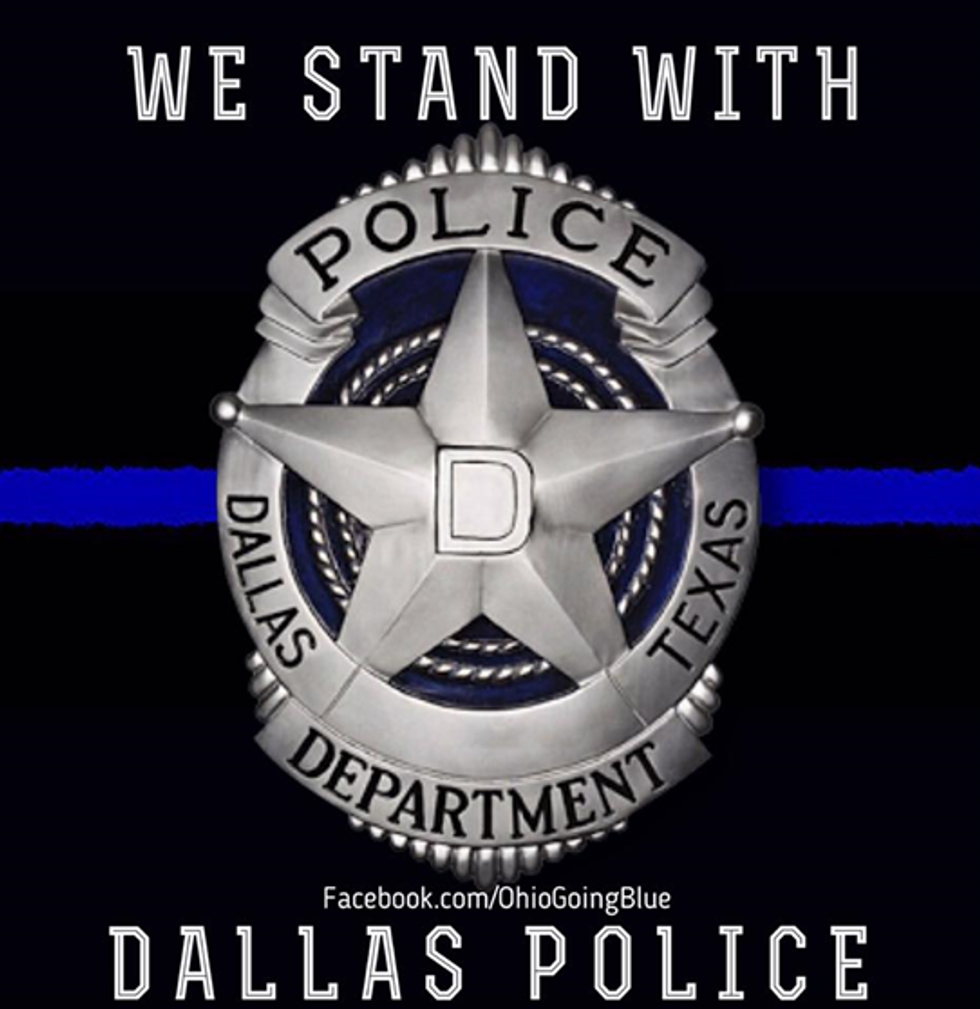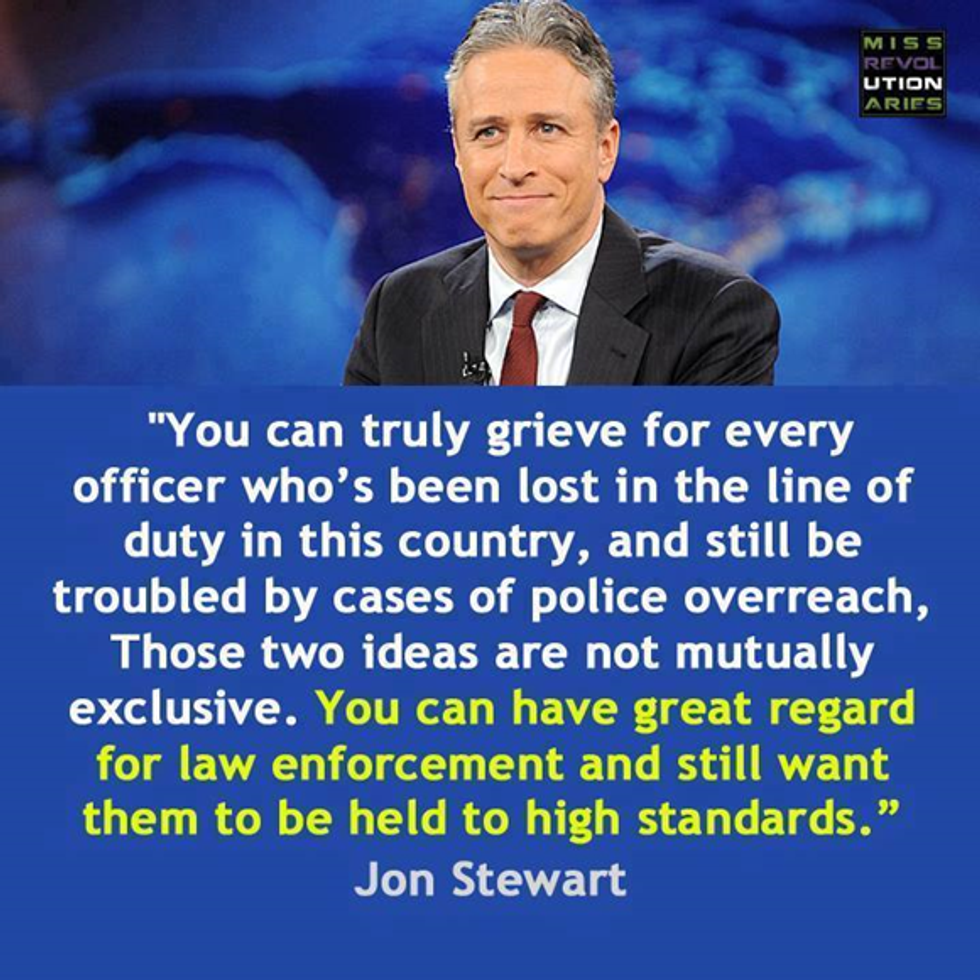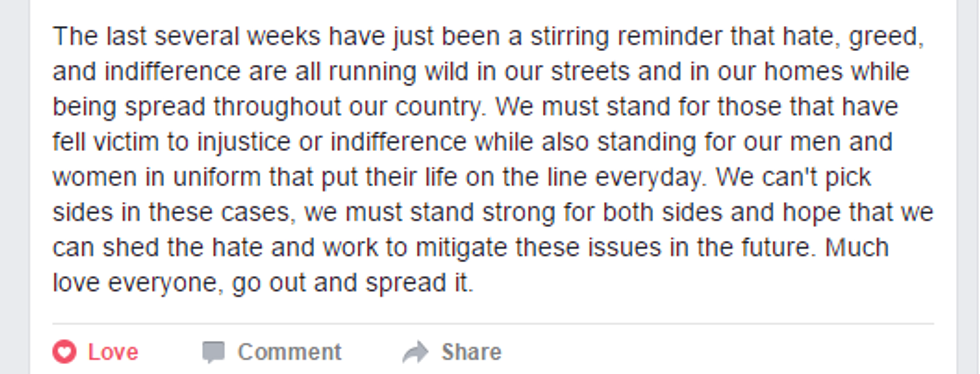Putting aside my aspirations of uniqueness, along with my aching need to avoid cliché topics while writing, this week I feel obligated to express my understandings of gun control in regard to the police force and the ways in which this controversy is manipulated by the media.
In light of this past week’s events, the Alton Sterling case and the Dallas police shooting, I need to share the scrambles in my head about the role of the media in gun violence. It is becoming abundantly clear the media plays a colossal role in the way that American citizens receive information.
And I’m not just talking about the multitude of biases in storytelling that the major news networks feed us, ranging from CNN to FOX or NBC. As a 21-year-old, when I woke up last Friday morning following one of the largest losses of police lives since 9/11, the first I heard of trouble in Dallas did not come from a major news network. It came from my cellphone, and from the countless Facebook posts that were popping up across my news-feed.
It took about two scrolls down the length of my cellphone to find a link to an article on the entire story, and then one or two more scrolls to find the same story told from another perspective. About four more scrolls and there were a dozen more articles.
The information wasn’t hard to find. It wasn’t difficult to figure out there was a shooting, how many people were injured and how many people were killed. It was the reactions that seemed to be manipulated.
One of the best things about living in a country founded on a strong sense of freedom is that everyone gets to have an opinion. Everyone gets to say and post whatever it is that they believe, sometimes without searching through all of the facts or taking the time to realize how it might influence the opinions of others who also do little research.
The only source of news citizens have stems from every form of our media. We weren’t there in Dallas. We have to trust the words of others — and more often than not those words come with biases.
This tragedy seems to have been sparked, at least partially, by the role of the media surrounding the Alton Sterling case. Whether one received their information from the news or from a social media outlet, there is no question that this was a highly covered, and highly controversial, piece of news.
There were immediate public disagreements and disputes over long-running issues of police brutality, and the role of race in these kinds of shootings. These arguments showed up all over the media, reminding citizens why they disagree and giving rise to anger.
This could very easily have been the primary spark for this Dallas protest. It almost feels wrong to call it a protest, though. Regardless of the fact I can see both sides of this argument; I can understand that the numbers clearly show a difference in police brutality ranging in races, as well as the numbers showing justification for many acts of police brutality — regardless of this, violence is not the kind of protest that should be condoned. These are called attacks. Not protests.
That makes me question whether or not these people, the snipers or attackers or protesters, really understood what they were reaching for when they began this act against their own police force — the citizens that would ideally would be keeping them safe, or rather were they manipulated into hate by the push of the media.
People had a right to be upset after the Alton Sterling case, no matter which side of the argument people were on, it was an upsetting issue. However, turning to more shootings has only bred more hate and distrust of others. This is not to mention the distrust that this could instill in service men and women and the police force.
People have that right to be upset and to share their opinions on the subject. They even have a right to protest and attempt to create change, but violence is not the kind of protest that should ever be considered acceptable. Media plays a large role in the division of this country on these types of issues, and while having diverse opinions is part of what makes America great, it is also what keeps us divided.
This week, let’s use the media to come together. To understand that we are all a part of this country and that a loss to one side is a loss to all of us. Even when we disagree, we all have the same end goal: to make the lives of all Americans better.
When we watch the news or post on social media, let’s take into consideration the fact that we are so much stronger when we stand together, and instead of allowing it to instill manipulated hate, let’s become educated on the issues. Let’s try to instill love.



























